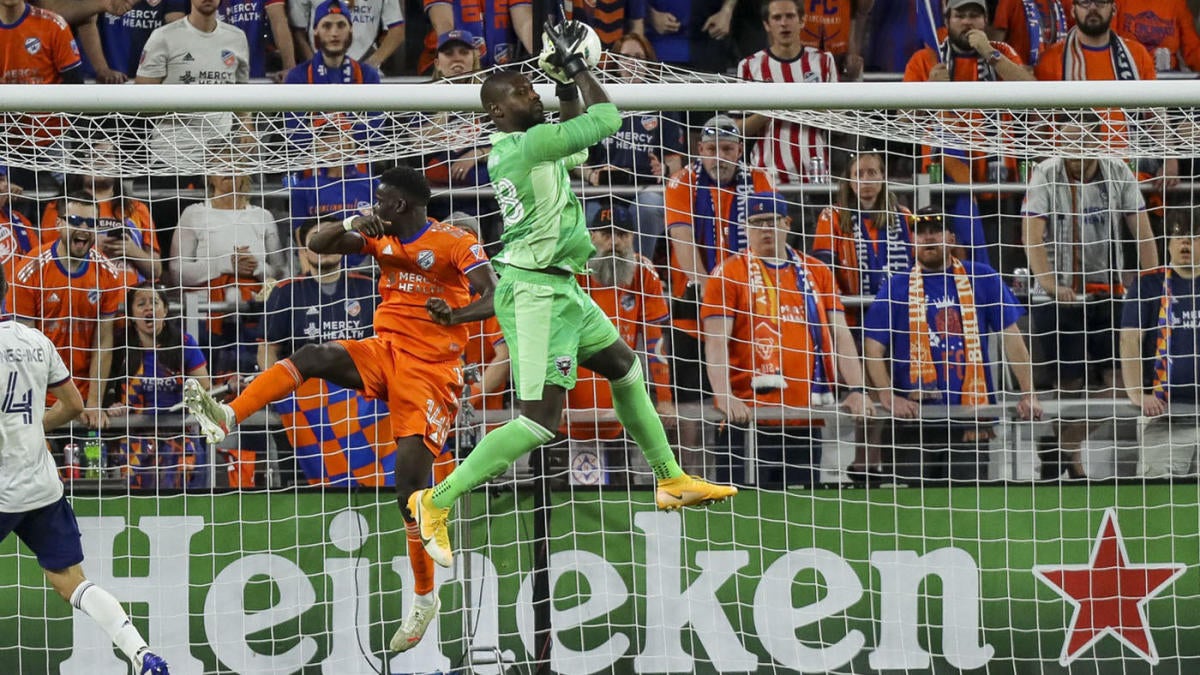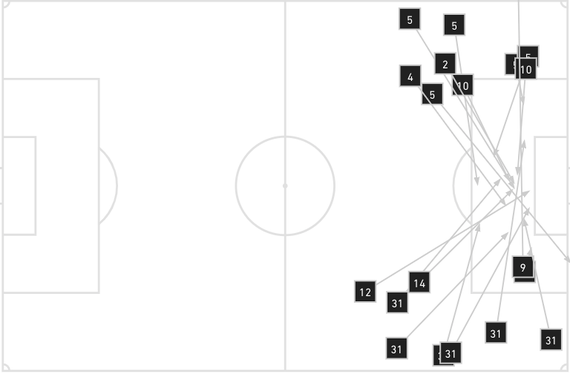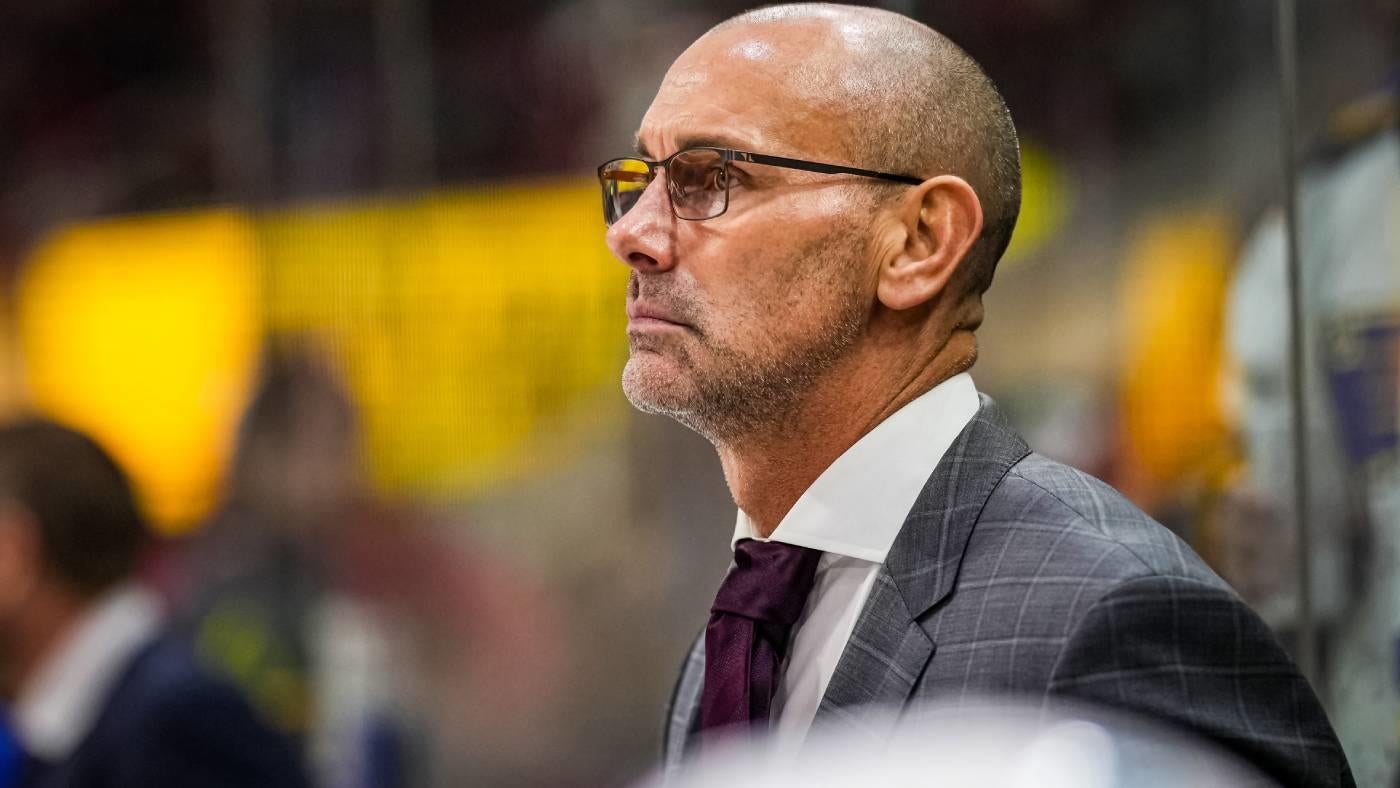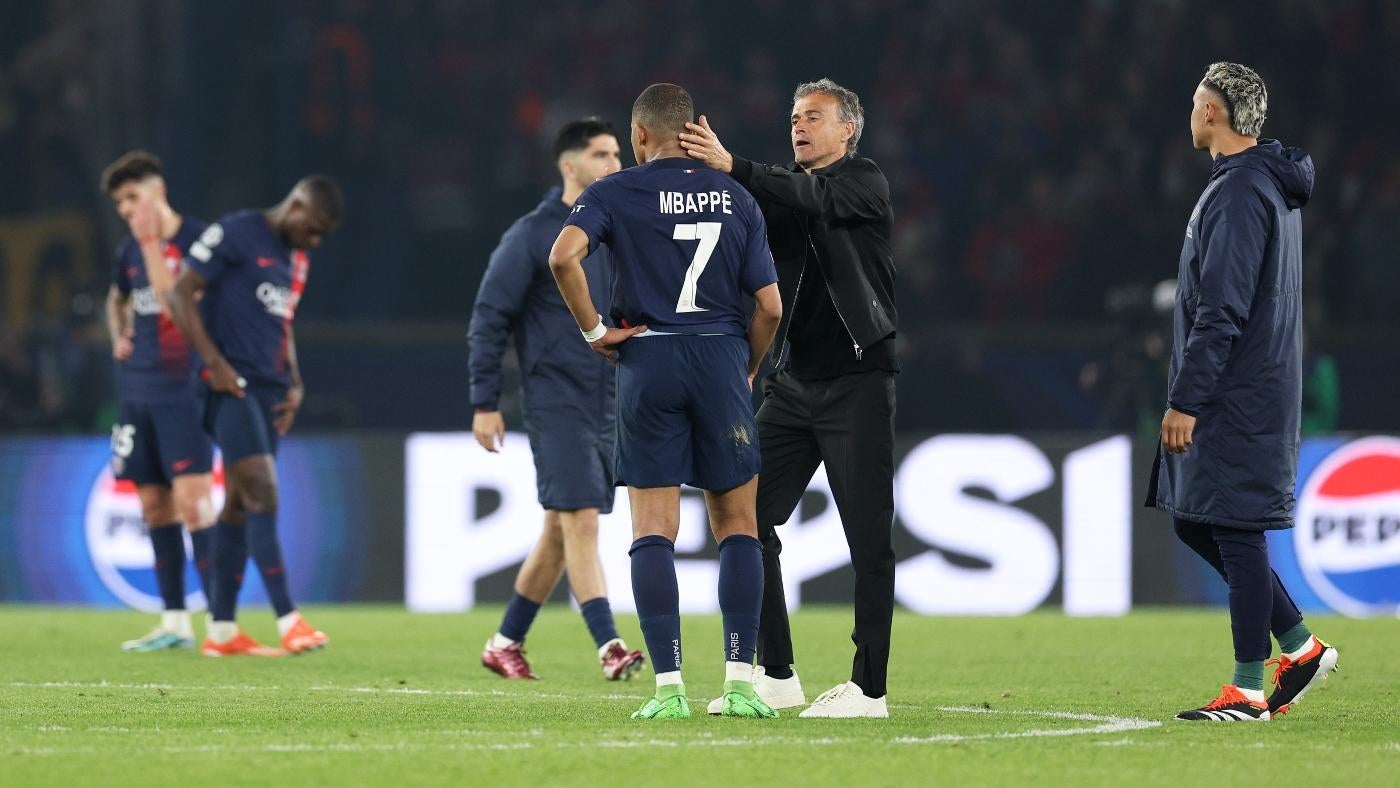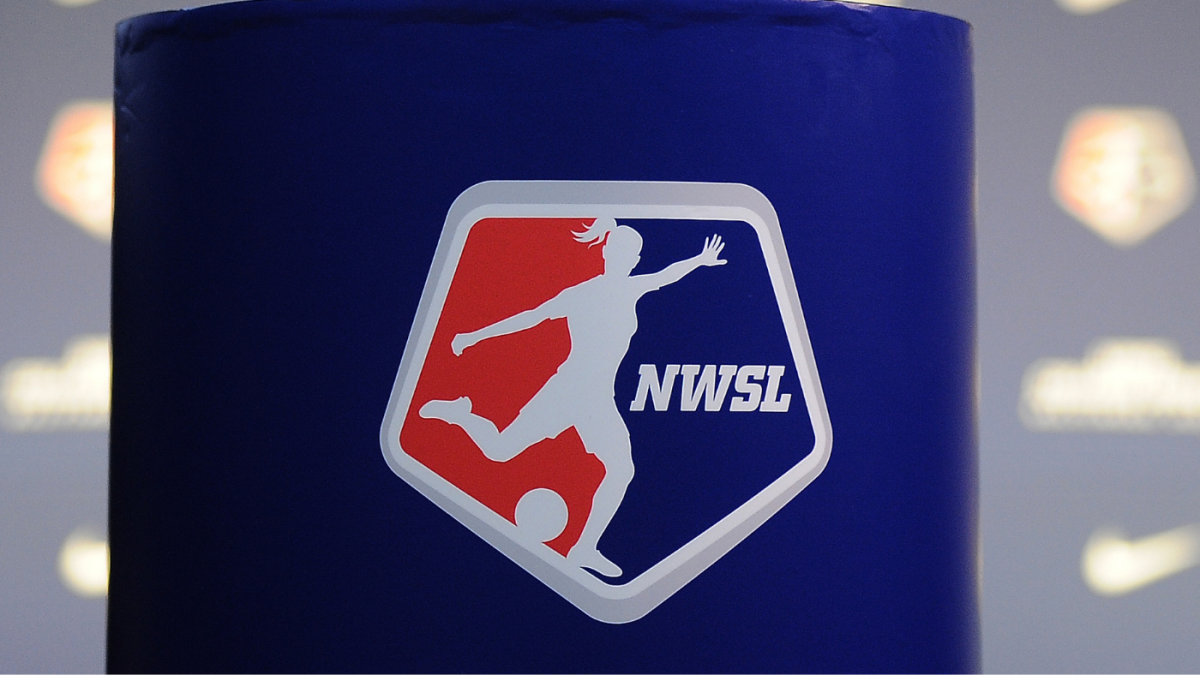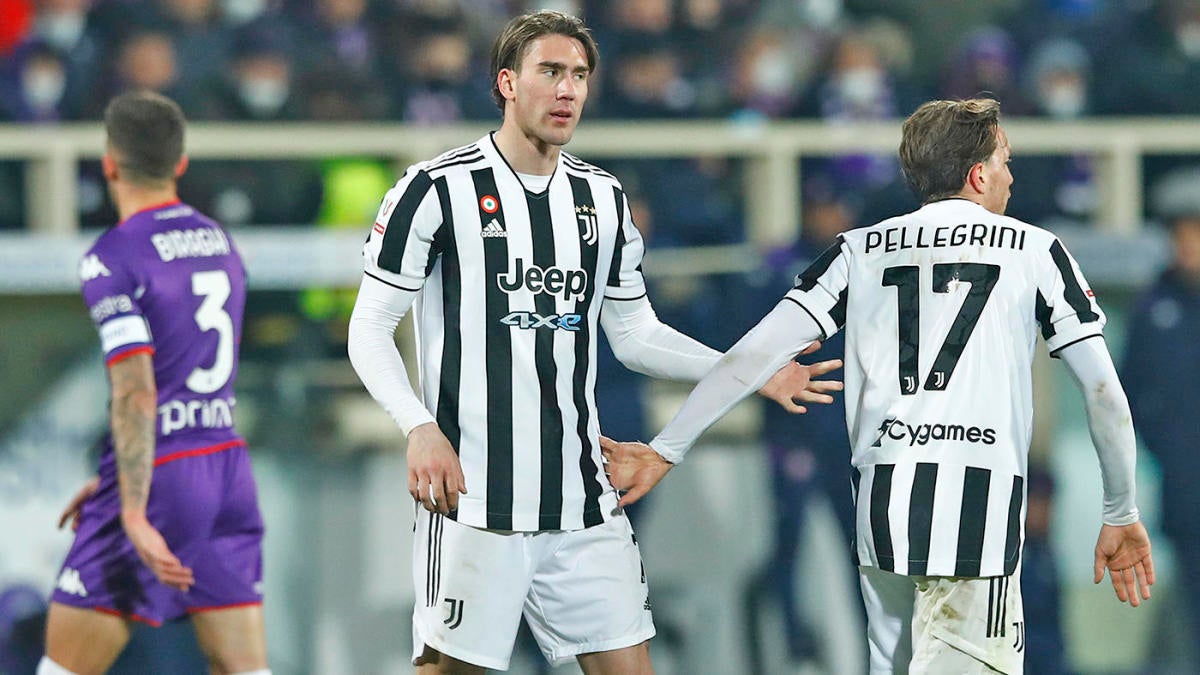MLS: Can D.C. United’s attack start clicking and take the pressure off keeper Bill Hamid?
Written by ABC Audio ALL RIGHTS RESERVED on March 16, 2022
On a frozen night at Audi Field, DC United’s undefeated start came to an end in a 2-0 loss to the Chicago Fire. Considering that United didn’t make the playoffs last season, their hot streak was always unlikely to last. On the other hand, the fact that ended at home against the Fire, who also didn’t make the playoffs last season, not only the loss but the manner in which they dropped points was disappointing to head coach Hernan Losada.
Speaking after the match, Losada said, “We’re still missing the final ball. The final touch [has] to be more accurate and more precise in the final third. At the moment we play a cross or we have to make a decision. I think on the ball this was one was the best of our three games until now and off the ball I still believe that Bill [Hamid] has too much work.”
For such a brief quote, there’s a lot to unpack there. But Losada broke things down into two main areas, with and without the ball. It was clear that decision-making was key during the match where United suffered through moments like when Andy Najer conceded a corner in the 23rd minute after trying to beat his man deep in his own third and losing the ball out of bounds. That corner then led to a free header by Rafel Czichos by the Fire. While the moment didn’t lead to a goal, these are things that Losada is watching and it’s easy to imagine he voiced his displeasure with Najer at halftime, as he was much better at choosing his spots to carry the ball up the pitch in the second half.
But decision making isn’t just about protecting the ball in your own third. DC won the possession battle but it’s what they did with it that matters. The team crossed the ball 23 times in this match (from open play and corners) only completing four all by Julian Gressel mostly from corners. Being a high-volume crossing team means that DC either needs an aerial target in the box to bring those crosses down or attacking movement needs to be coordinated so that the team knows where each other will be.
Crossing the ball a lot and having nothing to show for it is not exactly an original problem in soccer, nor is it limited to MLS. For inspiration, United could look across the Atlantic to the Premier League where, almost exactly a year ago, after his team lost to Wolverhampton Wanderers, Arsenal coach Mikel Arteta made waves for praising his team’s crossing. “I think it’s the first time in the Premier League we put in 35 crosses. If we do that, we’re going to score more goals. With the bodies we have in certain moments of the game in that box, it’s maths, pure maths. It will happen. It’s how consistently we can do that and with what level of quality.”
When Losada is saying that his team is playing well with the ball, even as he’s questioning their decision making, he’s saying the same thing Arteta did, if you keep getting into good positions, the results will come, and the high volume of crosses is indicative of what he seems as his team getting into good positions.
And there were flashes of those good ideas in United’s most recent match, Ola Kamara, Edinson Flores, and Brad Smith fired crosses across the face of the goal but no one was there to meet them. The results weren’t there, as the attacking unit completed no key passes and only put two shots on target, but with the ball getting into good spots, that’s likely to change. Michael Estrada may have helped but he started DC’s first two games along with Griffin Yow as United continued to rotate personnel. Settling on an attacking trio will help as consistency breeds familiarity and attackers knowing where to be to get on the end of what United are creating is the missing piece. This is still a work in progress, as after losing Kevin Paredes to Wolfsburg, Smith is still taking time to get adjusted so things are not working as expected in the early going.
Losada wasn’t shy about pointing this out saying, “So, we know we need to improve collective wise in order to balance that lack of creativity that we are having and we’re missing on the final third better.” Again there are echoes of Arteta explaining why Arsenal kept crossing the ball here, and eventually, that team did get the idea after growing pains. Losada knows how he wants DC to play, and if the Arteta model is any guide, reps in the system will eventually click for the team.
And that brings us to Losada’s second point. The team may rely too much on Hamid now, but if the attack starts to click that will take pressure off of Hamid so that DC’s matches won’t be decided by such fine margins. Right now United’s long-time keeper leads MLS in saves with 16, allowing only two goals, and it feels like even if United are perfect on a day, they’ll still need help to pull out a win. If the attacking end of the field improves, however, that changes the calculus of just how good Hamid has to be while anchoring this side.
While making this happen, there will be more growing pains like losing to the Fire at home, but there’s a light at the end of the tunnel. Taxiarchis Fountas could transform their fortunes in the final third when he arrives from Rapid Vienna during the summer transfer window. All Losada needs to do is stick to his principles and keep plugging away while hopefully being backed with smart transfers from the front office and the ceiling is there for DC United to become one of the best teams in the Eastern Conference in time.
The post MLS: Can D.C. United’s attack start clicking and take the pressure off keeper Bill Hamid? first appeared on CBS Sports.

